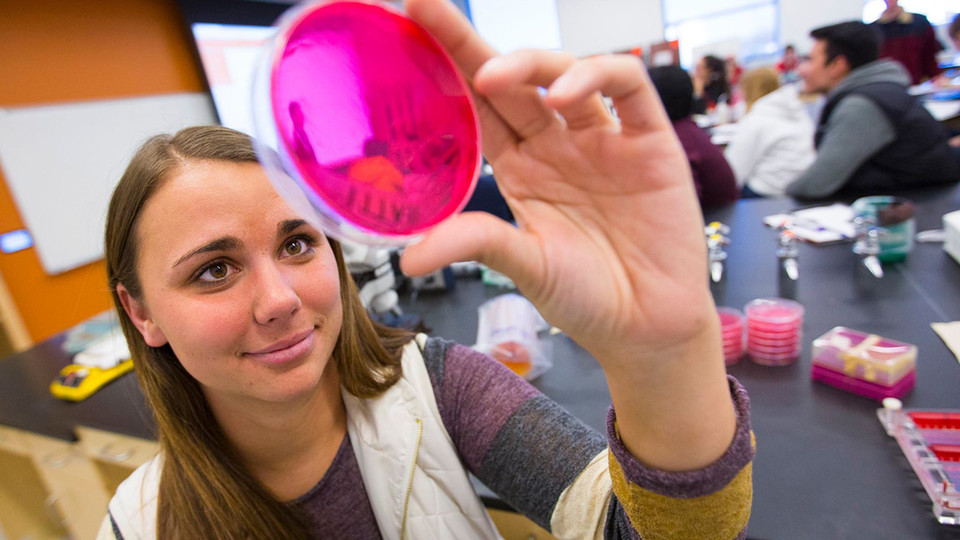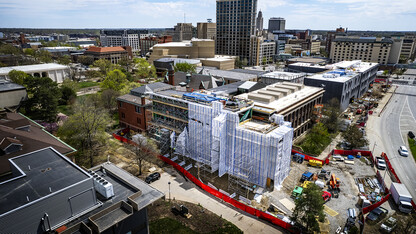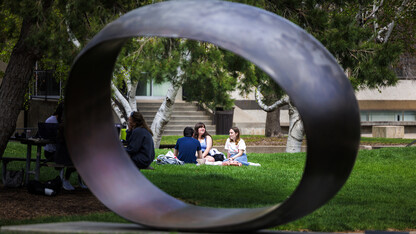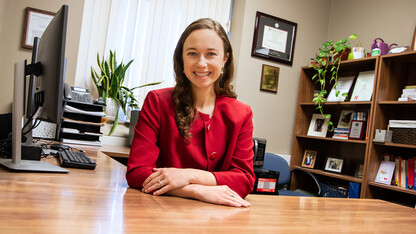· 3 min read
STEM Ecosystem to help local youth prepare for the future

The University of Nebraska–Lincoln is part of a new Lincoln-based ecosystem selected to join a global movement devoted to dramatically improving how students learn.
The Lincoln STEM Ecosystem was announced April 3 as one of the latest to join the STEM Learning Ecosystems Community of Practice.
STEM Learning Ecosystems build meaningful regional connections among educators, business and industry partners, and after-school and summer programs to prepare students for the opportunities and challenges of the future. Each ecosystem connects to counterparts from across the country and world, enabling the exchange of best practices, information and resource-sharing.
Admittance into the STEM Learning Ecosystems Community of Practice is highly competitive, with just 85 total ecosystems across the globe. The College of Agricultural Sciences and Natural Resources and College of Engineering are both represented within the Lincoln STEM Ecosystem.
“Addressing the complex challenges society will face in the future will require the combined efforts of great minds from different backgrounds,” said Tiffany Heng-Moss, a founding member for the ecosystem. “Through partnerships with those within the Lincoln STEM Ecosystem, we can identify ways that we, as a community, can foster positive STEM interactions for youth in Lincoln and beyond.”
Sally Wei, education and outreach coordinator in the College of Engineering, is also a founding member.
Forming STEM ecosystems was listed as the No. 1 priority for STEM education in a December 2018 report by the Federal Office of Science and Technology Policy.
“The ecosystems that we selected now have pulled together diverse partners who no longer accept the status quo in education; they want to see all students access high-quality STEM education that will prepare them for life and work in the next century,” said Jan Morrison, president and founding partner of TIES, the organization that operates the STEM Learning Ecosystems Community of Practice.
James Blake, a K-12 science curriculum specialist for Lincoln Public Schools and co-director of the Lincoln STEM Ecosystem, said Lincoln is making great strides to offer recommended rich, meaningful STEM education and experiences to youth in the community.
“As a recognized STEM Learning Ecosystem, we can tailor quality STEM learning opportunities to our specific needs in Lincoln while leveraging the experiences of similar alliances across the world,” Blake said.
Joining Blake in directing and shaping the ecosystem is Bryan Seck, director of workforce development for the Lincoln Partnership for Economic Development.
Early plans for Lincoln are to host a formal kickoff, a “STEMixer.” This annual event will add partners and keep those interested in supporting and building a STEM ecosystem at the table. The group aims to make Lincoln a leader in STEM workforce competitiveness in Nebraska and the United States.
In addition to Heng-Moss and Wei, founding members of the new Lincoln STEM Ecosystem include: Dan Hohensee, director, The Career Academy; Tiffany Mousel, community outreach specialist, Lincoln Electric System; Patricia Wonch Hill, interim director, methodology and evaluation research core facility, University of Nebraska; Anna Wishart, senator, Nebraska Legislature; Nola Derby-Bennett, Community Learning Centers director, Lincoln Public Schools; Jeff Cole, network lead, Beyond School Bells; Tracy Bohaboj, team leader, engineering, Duncan Aviation; Jessilyn Vraspir, continuous improvement, Lincoln Public Schools; and Reeves Cleve, principal architect, BVH Architecture.








